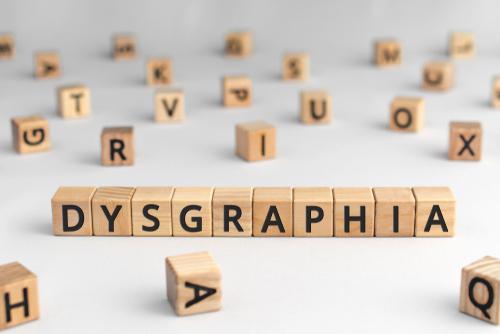Fine Motor Skills Normal Tracing Words Worksheets for Ages 4-7
6 filtered results
-
From - To
Enhance your child's fine motor skills with our specially designed Tracing Words Worksheets for ages 4-7. These engaging worksheets are perfect for guiding children through the early stages of writing. By tracing dotted lines to form words, kids can develop their hand-eye coordination, pencil grip, and control. These foundational skills help pave the way for neat handwriting and better letter recognition. Ideal for kindergarten and early grade learners, our worksheets make practicing writing both fun and educational. Explore our collection today to support your child’s fine motor skills growth and success in early writing.
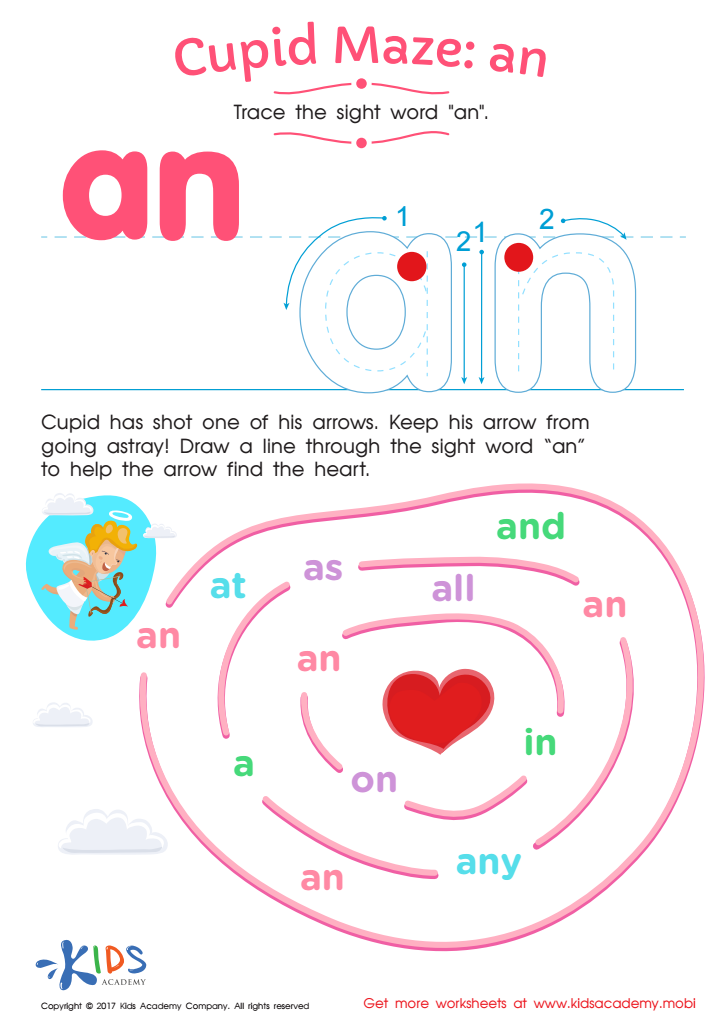

Cupid Maze: An Printable
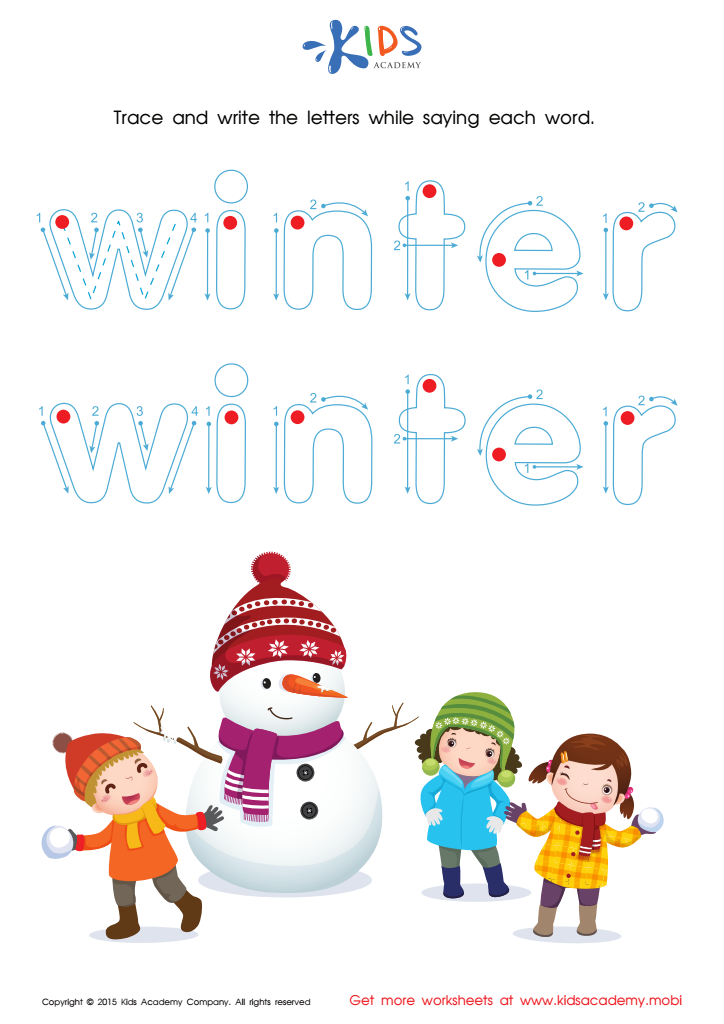

Snowman Tracing Winter Words Worksheet
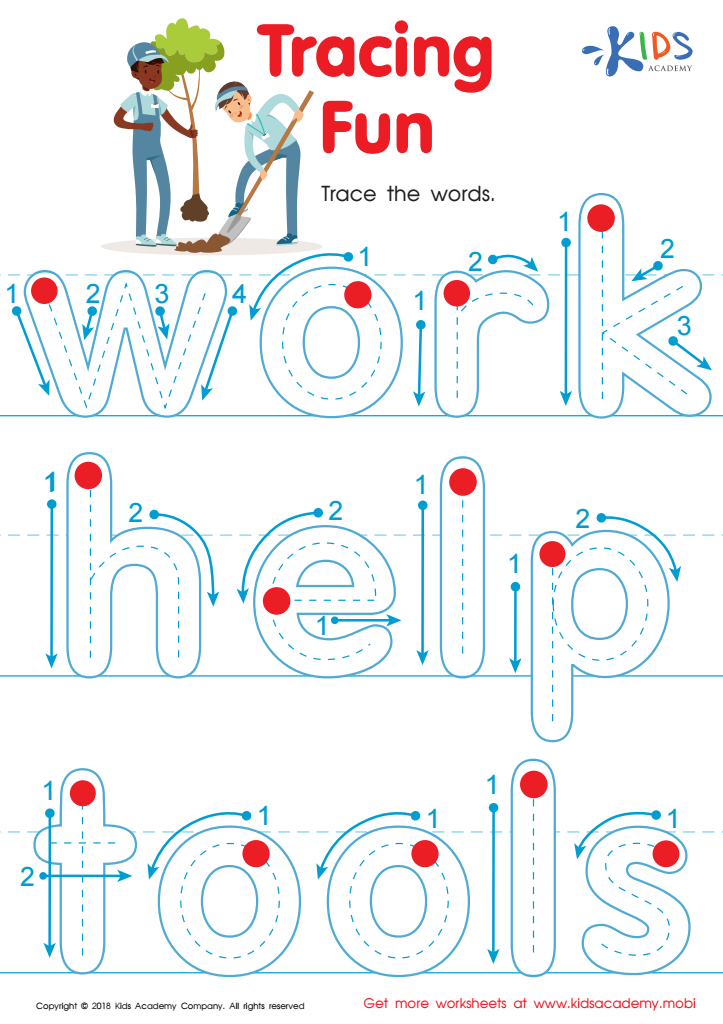

Tracing Fun Worksheet
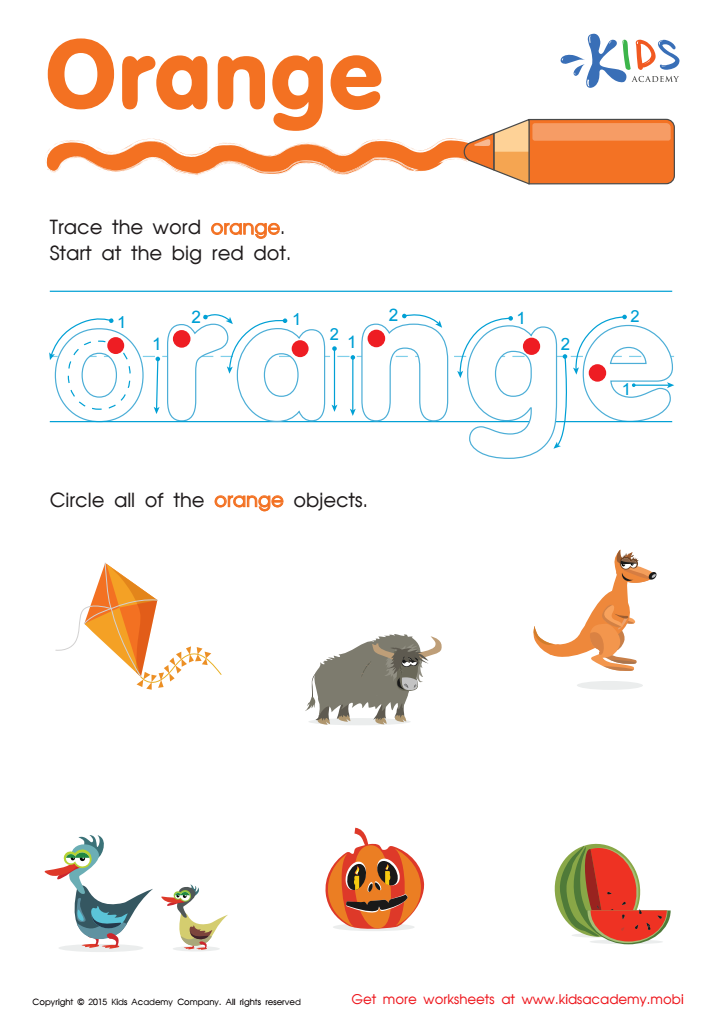

Orange Tracing Color Words Worksheet
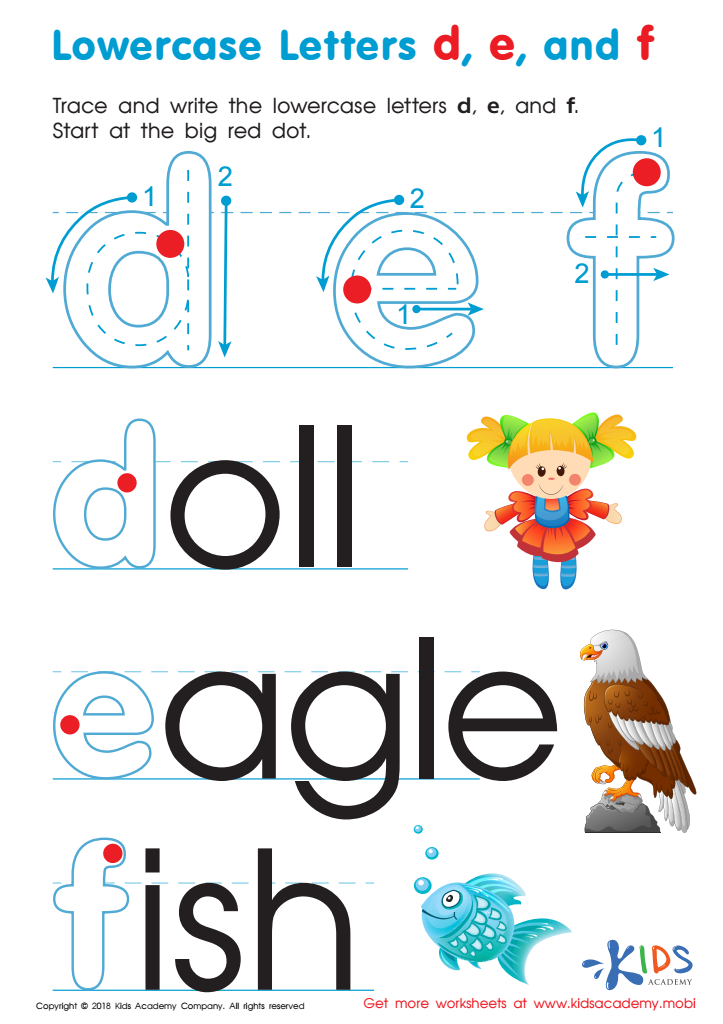

Lowercase Letters d e f Worksheet
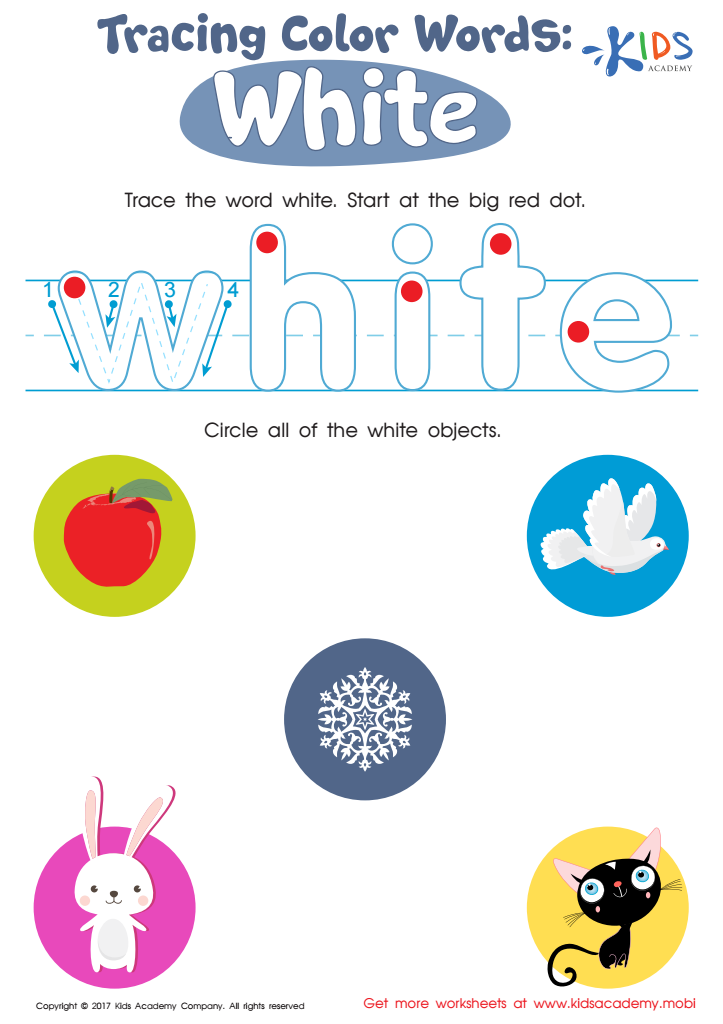

White Tracing Color Words Worksheet
Fine motor skills refer to the precise movements of small muscles in fingers, hands, and wrists. These are essential for children's everyday activities such as tying shoelaces, buttoning shirts, and especially for academic tasks like writing. For children aged 4-7, mastering fine motor skills through normal tracing words is crucial for several reasons.
Firstly, it enhances handwriting abilities. Tracing words helps children learn the correct formation of letters and improves their control over the pencil, leading to legible handwriting. Inadequate fine motor skills can make handwriting a laborious task, hindering academic performance.
Secondly, strong fine motor skills contribute to overall cognitive development. The act of tracing letters requires concentration and memory recall, aiding in sharper cognitive function. It also supports language development as children connect the physical act of writing with auditory and verbal instruction.
Additionally, fostering fine motor skills through tracing builds confidence and independence. As children become more adept at tasks requiring fine motor precision, their self-esteem rises, encouraging them to take on new challenges.
Teachers and parents play vital roles in this developmental stage. They should invest time in activities that promote fine motor proficiency, setting the foundation for both academic success and essential life skills. Offering diverse tracing exercises creates an engaging and educational environment where children can thrive.
 Assign to My Students
Assign to My Students



